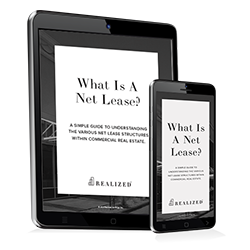Signing a long-term lease on a commercial property in California can bring about increased risk for your business since you’ll be on the hook for making those lease payments for three to five years, if not longer.
Landlords, on the other hand, typically prefer long-term leases because they can expect a longer stream of steady rent payments. That projected stability reduces their risk as property owners. Landlords also usually often offer more favorable rates for tenants that sign long-term leases. However, it’s hard to predict where your business will stand several years down the road, especially if you have a fledgling operation that’s still trying to establish itself.
If things go south, you may need to close your doors and break your lease agreement. Read on to learn how to terminate a commercial lease early in California.
What to Do When You Need to Terminate a Commercial Lease Early
Signing a long-term commercial lease creates a binding legal agreement between landlord and lessee. That contract can bring some trepidation since the obligation of sending your landlord a sizable lease payment each month falls squarely upon your shoulders. It also can be an exciting time – especially for new business owners who are finally realizing their dreams of independence by piloting their own ship.
Opening a new business is extremely risky, though. Just one of every five new businesses makes it past its first year in operation.¹ A failing business might be the most common reason why tenants want to get out of their leases early, but there are many other possibilities for an early exit. If your business is going gangbusters, you may need more space to expand. Or perhaps you simply want to move on to another endeavor.
Whatever the reason, it can be an uphill battle when you decide you must break your commercial lease. Prior to making any moves, you might want to consult with an experienced attorney or at the least a commercial real estate broker to discuss potential penalties and liabilities you could face. The first step in the process should be to carefully look over the terms of your commercial lease so you know what kind of fight you are facing.
Your lease might contain language that defines the assignment of the lease to a new tenant, as well as whether the landlord is obligated to accept a new lessee. Damages for early termination of the commercial lease are likely spelled out, including potentially a recapture clause that could allow the property owner to terminate your lease simply because you inquired about assigning it to a new tenant.²
There also are a few steps you can take to avoid terminating the lease. These include asking for reduced rent for a period of time (keep in mind that your landlord likely will tack on any rent reductions to the end of the lease agreement), requesting a reduction in space in the same center in order to lower your rent payments, or getting landlord approval to assign the lease to a new tenant. In high-demand areas, landlords might be more willing to take on a new tenant than in areas where tenants and foot traffic are hard to come by.
Legal Responsibilities for Breaking a Commercial Lease in California
A commercial lease is a binding legal document. If you decide to vacate the property, you still are responsible for any unpaid rent for the terms of the lease agreement. Mitigation could soften the blow – it’s what you’ll have to pay if you can show that the landlord could have made the effort to rent out the space to another tenant. But of course that means you’ll have to hire an attorney and litigate your case, which likely will result in some hefty legal expenses. If you don’t get legal representation, however, you could be on the hook for a default judgment. That’s why bailing out without communicating your situation to your landlord isn’t a good idea.
If you can’t sell your business or assign the lease to a new tenant, you may need to consider bankruptcy. Your landlord likely will want to be made whole regardless of your financial situation, and if your business is financially insolvent, you might have to go down this path.
The Bottom Line
Signing a commercial lease in California is a serious financial commitment. Breaking that lease can bring about some stiff financial penalties. Since the full legal ramifications of early lease termination are beyond the scope of this article, it would be wise to consult with an experienced attorney to discuss your options and gain a clearer understanding of your obligations to your landlord if you do decide to get out of a commercial lease early in California.
Sources:
1. Pros and Cons of Being a Small Business Owner, Business News Daily, https://www.businessnewsdaily.com/7957-good-bad-owning-business.html
2. Early Termination of a Commercial Lease, San Diego Business Lawyer, https://www.sandiegobusinesslawyerblog.com/early-termination-commercial-lease/



